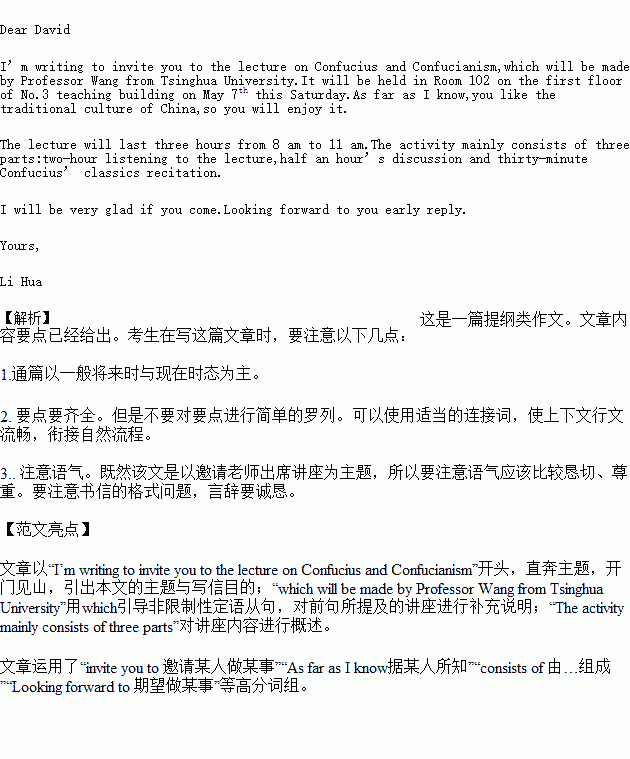题目内容
假设你是李华,你校外教David对中国长城很感兴趣。本周六你们学校邀请清华大学的王教授到校进行有关长城的讲座。请你给David发一封电子邮件,邀请他来参加讲座并向他介绍讲座的有关事宜。
1.讲座内容:长城修建原因及其建筑特点;
2.讲座的时间:5月7日(星期六)上午8:00---11:00;
3.讲座地点:3号教学楼一楼102室;
4.讲座后还将有提问环节。
注意:
1.词数100 左右;
2.可以适当增加细节,以使行文连贯;
3.开头和结尾已为你写好,不计入总词数。
参考词汇: 清华大学Tsinghua University
Dear David,
____________________________________________________________________________________________________________________________________________________________________________________________________________________________________________________________________________________________________________________________________________________________________________________________________________________________________________________________________________
____________________________________________________________________________________________________________________________________
Yours,
Li Hua

